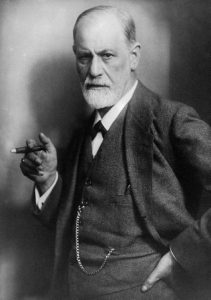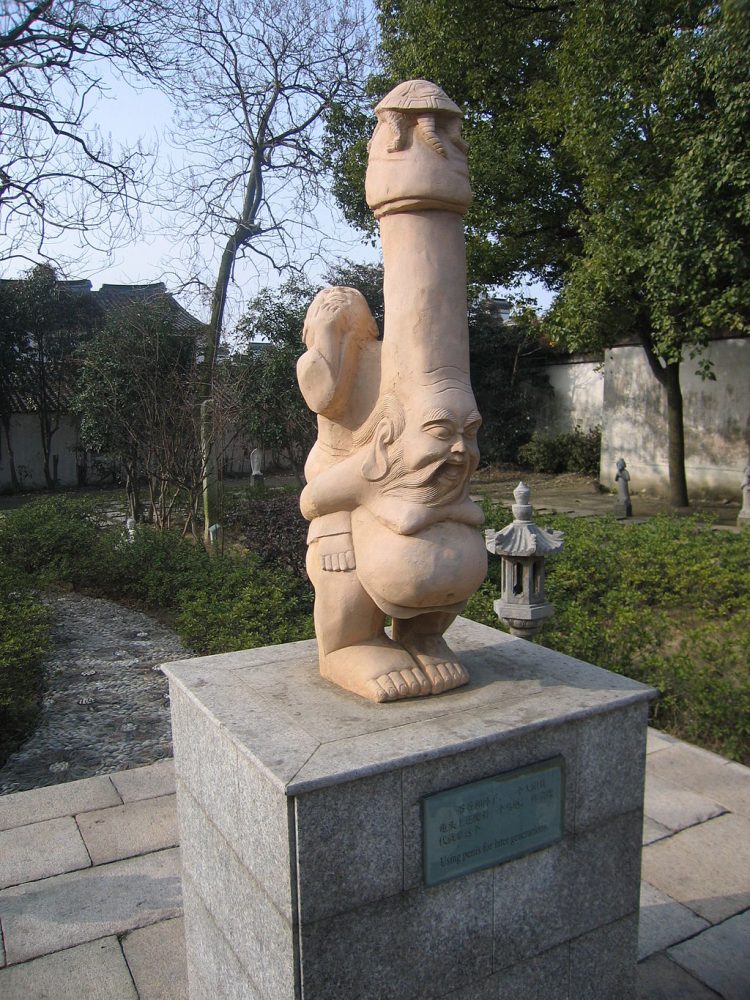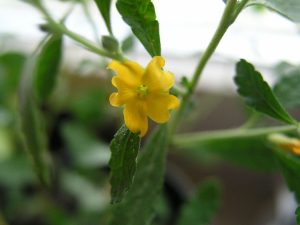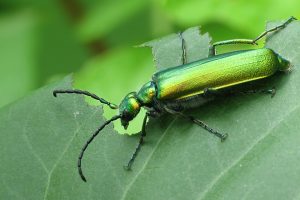![By Miniature (Rajasthan) [Public domain], via Wikimedia Commons](https://supplementsinreview.com/wp-content/uploads/2016/08/Indiaerotic.jpg)
The phrase “Testosterone & Libido” evokes the most unflattering male stereotypes: Riled-up, dumbed-down man-beasts who can’t go 7 seconds without thinking about sex, chasing girls, or punching a fellow man-beast in the face.
Why then would anyone in their right mind want to boost male testosterone and libido at the same time? We’ll give you two good reasons:
- Often times a suppressed or impaired libido can be symptomatic or causative of deeper psychophysiological health issues.
- Because why not?
Plus, in many men (especially over age 30), that testosterone-driven sex drive may be diminished by aging and environmental factors — taking our masculinity right along with it.
We want it back. Damn the “dumb horny male” jokes, loss of logical reasoning, and irresistible urges to buy drinks for attractive ladies. We’ll gladly suffer those slings and arrows in exchange for rejuvenated sex drive.
This article is intended to help men restore that manly mojo with smart supplementation of the best T-boosters for libido, specifically — many of which offer male performance benefits beyond simply raising testosterone.
About Libido
The common definition by which we understand the concept of libido is simply written as a man’s or woman’s “sexual desire.” In other words, any vague or specific aspect of “turning someone on” is considered a part of that person’s libido.

Etymologically, the word comes from Latin, literally translating to desire and lust. But it wasn’t adopted into modern language until psychoanalysts such as Sigmund Freud & Carl G. Jung incorporated in their works, using it as the center of their psychosexual research & theories.
For Freud, libido was an operator of the “id“–the unconscious part of the mind that, according to Freud, houses all of our primal instinctive impulses, which were usually sexual or aggressive by nature. Under this theory, libido not only represented sexual energy, but was the basis of all psychic energy–in effect, subverting general psychology to the whims of an underlying, unconscious sexual nature.
Carl Jung disagreed.
Jung viewed libido as vague, undifferentiated psychic energy–not entirely different from how most people consider libido today. Whereas Freud considered the libido as sexual energy stemming from the primordial “sexual stages” of infancy, Jung pinned down puberty as the origin of libido.1
No doubt libido plays an important role in day-to-day life–perhaps even in the Freudtastic dimensions of the unconscious mind. However, since the rise-and-fall of early psychoanalysis, the concept of the libido has shifted with every subsequent shift of psychology–from the conditioning research of Pavlov’s dog (Is libido a result of classical conditioning?) to the more recent “cognitive sciences” (Is libido shaped by various psychological, linguistic, philosophical constructs?).
For most men & women, the idea of “libido” is much simpler than all of this:
Libido is just being horny.
But, if that’s all it is, then how are we to understand libido boosters? Do libido boosters act on a specific psycho-/bio-mechanism or do they simply, inexplicably make us horny?
Let’s see what everyone else thinks:
Understanding Libido Boosters

While the technical use of the word “libido” dates back to the fin-de-siècle era of psychoanalysis, specifically originating from Freud’s earlier works in 1894, the concept of enhancing desire or lust dates back as far as humankind has been insecure enough to care about petty things such as sex & reproduction & whatnot.
As far as we know, the Apple that tossed Adam & Eve from paradise was “sold” as a sex enhancer, advertised with snake drawn signs claiming “Youth restoring sex drives” and “Nine inches in two minutes” and “Your jaw will DROP when you see what forbidden secrets this fruit can–”
On that note, throughout history libido boosters have been a source of wild speculation & contention: Some users investing lots of time & money into them, others simply writing them off as an elaborate, ongoing “snake oil” scam. But, this disagreement may have less to do with the efficacy of foods & supplements associated with libido, and more to do with our shifting (mis)understanding of what constitutes “libido”—and, consequently, what constitutes a “libido booster.”
In the 13th century, St. Thomas Aquinas qualified sex enhancers as foods that produced “vital spirit” and provided healthy nutrition. Botticelli’s 1480s The Birth of Venus painting associated the powers of Aphrodite, Greek goddess of love & sex, with the seashell carrying her, in a sense establishing the Oyster as the OG aphrodisiac. Later, 18th century “sex enhancing” recipes expounded Aquinas’ somewhat vague theory on sex enhancers with the Roman physician Galen’s beliefs that aphrodisiac foods are “warm” and “moist” and “windy”—i.e. flatulent.
The Theory: During arousal, the penis fills with gas. Therefore, eating “gassy” foods helps male sexual function.
![Ambergris, another strange aphrodisiac produced in whale stomach, actually science-backed libido enhancing effect. By Zarateman (Own work) [CC0], via Wikimedia Commons](https://supplementsinreview.com/wp-content/uploads/2016/08/Motrico_-_Graffiti__murals_04-1024x768.jpg)
However, the concept of asserting dietary control on libido isn’t far-fetched (or even short-fetched for that matter), considering the advancements made in our understanding of the relationship between psychophysiology & sex drive. Among men, in particular, there’s a well-documented correlation between libido & sex hormones–namely testosterone.
With that in mind, if you can theoretically boost T, then you can theoretically boost libido… but how does that theoretically even work?
Does it?
How Testosterone Might Help Libido
Libido isn’t entirely 100% linked to testosterone. There are layers of convolved psychological + physiological mechanisms that affect sex drive, and T is only one of the cogs involved in a man’s biological network. But it’s a very important cog that, if missing, can throw the whole system out of whack.
For that reason, testosterone boosting is one of the first moves to consider during conditions of low libido. In many cases, low T seems to be the primary cause for low libido, influencing many frustrated men to seek out qualified T-booster stacks–either on their own volition or on the recommendation of a physician.
On that note, here are a few benefits & bio-mechanisms associated with T & sex drive, and how increasing the former might help the latter:
Revives age-related libido-loss
As men age, T naturally decreases.
Additionally, as men age, libido naturally decreases.
![By Florida Memory [No restrictions], via Wikimedia Commons](https://supplementsinreview.com/wp-content/uploads/2016/08/Portrait_of_author_Ernest_Hemingway_posing_with_sailfish_Key_West_Florida-175x300.jpg)
- The first study observed the relationship between sex hormones & subjective measures of libido among a large sample of aging men (n = 1632). Spanning a time period of ~15 years, the researchers noted differences in serum T levels in relation to libido, finding a reliable decrease in libido parallel to a decrease in T. Their conclusion: “Libido and T concentrations are strongly related at the population level.”3
- The second study reviewed the administration of testosterone replacement therapy (TRT) on men with low testosterone levels symptomized by late onset hypogonadism (age-related T-decline). The results indicated improvements on libido and sexual function, in addition to muscle mass, body composition, mood, erythropoiesis, cognition, quality of life, and cardiovascular issues.4
Yet, due to the known risks of TRT, older men are increasingly opting for natural T-booster supplements instead, which work by increasing natural T production rather than providing foreign supplies of testosterone.
Increases energy levels
One of the most commonly reported impairments on sex drive:
“I’m just too tired.”
Sex is a physical activity and physical activities require energy. No energy, no sex.5
Another demonstrated side effect of low T levels is “low energy levels” measured by the SAID scale (Sexual Arousal, Interest, Drive). And this isn’t unique to older men as males of all ages 18+ have been shown to possess lower SAID scores under sub-par T level conditions. One large randomized, multicenter, double-blind, placebo-controlled, 16-week study observed a total of 715 men (18+ years), administering either a 2% T solution or placebo. By the study’s end, men who increased their T levels also improved their sex drive in a pattern that significantly correlated with increased energy levels.6
Strengthens penis rigidity
Admittedly, this is a rather elusive bio-effect of T–even though it seems rather intuitive.
In men with either normal or low T levels, T shows improvement on ED issues.7
Yet, the exact biomechanism engaged here is relatively unknown. Other compounds that remedy ED do so by:
- Increasing nitric oxide vasodilation
- Inhibiting PDE5 for increased penile blood flow
- Reducing estradiol levels
T might be acting on an amalgamation of these bio-mechanics, the net result simply being enhanced rigidity. However, men may benefit in this department from a T-booster that not only boosts T, but also provides a secondary effect on one of the above-listed benefits–see lists below.

Sexual Desire vs. Sexual Function
Two key words to keep in mind here: Desire & Function.
Generally, “Desire” relates to a psychological measure of libido, whereas “Function” is the physical bio-mechanisms related to sex. In very simple terms: Function can affect Desire, but Desire rarely affects Function. Within this paradigm, T primarily aids Function (i.e. reproductive health, physical arousal, etc.) while having secondary effects on Desire (i.e. mental arousal, motivation, etc.). However, there are certain compounds that have been shown to accomplish the opposite: Increased Desire, little to no effect on Function. Such ingredients are common to T-boosters because they feel like the T-booster is working when, in reality, T levels are unaltered.
Due to this discrepancy between Desire vs. Function, we’ve listed T-Boosters that:
- Boost Libido and T
- Boost Libido, not T
- Should be AVOIDED
Here they are:
T-Boosters that Boost Libido and T
We might as well list every T-booster here that actually boosts T, considering that T itself is a libido enhancer. Instead, we’ll save you time (& eye-strain) by including only T-boosters that are A) primarily known for enhancing libido, or B) significantly awesome at boosting T.
Fenugreek
![By Humbads at en.wikipedia (Own workTransferred from en.wikipedia) [Public domain], via Wikimedia Commons](https://supplementsinreview.com/wp-content/uploads/2016/08/Fenugreek-methi-seeds-300x254.jpg)
- Inhibiting aromatase. Enzyme that converts T to estrogen.
- Blocking 5α-reductase. Enzyme that converts T to DHT.8
Essentially, by preventing the enyzmatic conversion of T into other compounds (in effect also reducing girly estrogens), Fenugreek increases overall active T levels in the bloodstream. While this comes at the questionable reduction of DHT, an even manlier male hormone, the increase in T coupled with Fenugreek’s protodioscin content does wonders for the libido—however, beware its sotolon concentration, which gives your sweat & urine a “maple syrupy” aroma. More on Fenugreek.
Zinc
![Ёёги at Russian Wikipedia [GFDL or CC BY-SA 3.0], via Wikimedia Commons](https://supplementsinreview.com/wp-content/uploads/2016/08/Zinc_pieces-300x225.jpg)
Under conditions of low T, Zinc has been shown to:
Plus, there’s the whole “Ejaculate Paradox Theory” that states around 5 mg Zinc is lost upon ejaculation, creating a potential loss of T with every sexual encounter. True or not, we’re not taking our chances. More on Zinc.
D-Aspartic Acid
Here’s an amino acid that qualifies for the “significantly awesome at boosting T” category. D-Aspartic Acid (DAA) doesn’t directly enhance libido so much as it creates potent spikes in T (that directly enhance libido). Throughout the hypothalamic pituitary gonadal (HPG) axis, DAA seems to stimulate & sustain male sex hormone production—with one study showing an increase in T by 42% after only 12 days of supplementation.12
On the flipside, DAA seems to also increase female hormones as well, which could theoretically diminish sex drive in men. For that reason, many DAA users tend to stack DAA with an effective estrogen-blocker. More on D-Aspartic Acid.
Tongkat Ali
![By Mokkie (Own work) [CC BY-SA 3.0], via Wikimedia Commons](https://supplementsinreview.com/wp-content/uploads/2016/08/Tongkat_Ali_Eurycoma_longifolia-221x300.jpg)
Referencing back to the discussion on Sexual Desire vs. Sexual Function, TA seems to benefit both by enhancing libido and sperm quality. More on Tongkat Ali.
Mucuna Pruriens
One of the most visually appealing T-boosters, Mucuna Pruriens is a furry tropical bean plant that benefits libido in two ways:
- By increasing T.
- By supplying L-DOPA.
Mucuna Pruriens active component, L-DOPA, works as a precursor to Dopamine—the “feel good” neurotransmitter associated with risk-reward behaviors and “fun time” activities, such as drinking, gaming, and, yes, having sex. Incidentally, having a healthy supply of dopamine has as much to do with “feeling good” during such activities as it does with feeling motivated to engage in such activities. Due to this, Mucuna Prurien’s L-DOPA increases sex drive while also promoting release of Luteinizing Hormone for increasing T production.15 More on Mucuna Pruriens.
BONUS: Oysters
![By David Monniaux (Own work) [GFDL, CC-BY-SA-3.0 or CC BY-SA 2.0 fr], via Wikimedia Commons](https://supplementsinreview.com/wp-content/uploads/2016/08/Ostrea_edulis_Marennes_p1050140-300x285.jpg)
T-Boosters that Boost Libido, but Not T
Not everything that boosts libido also boosts T. A few libido boosters actually have the potential to diminish T or are more geared towards women’s libido than men’s. In general, the libido boosters in this list are safe for male consumption—however, men looking to primarily boost T shouldn’t solely rely on these ingredients.
Tribulus Terrestris
![Forest & Kim Starr [CC BY 3.0], via Wikimedia Commons](https://supplementsinreview.com/wp-content/uploads/2016/08/1200px-Starr_030612-0067_Tribulus_terrestris-300x225.jpg)
The (new) general consensus is that Tribulus makes men feel like “men” on a placebo level. Any subsequent increases in mass, strength, or T are likely attributed to Tribulus’ placebo effect. But how does Tribulus do this?
- Tribulus’ “active compound” (also found in Fenugreek) doesn’t directly increase T, but it might influence T expression by improving LH status.17 Aside from that, Protodioscin has a strong association with sex drive, which partly explains why Fenugreek is also a potent libido-enhancer.
Other theories revolve around Protodioscin increasing DHEA (T-precursor) & enhancing androgen receptivity, but we’ll need more human clinical research to fully validate these claims. More on Tribulus Terrestris.
Maca Root
Rumor has it that Maca Root (a.k.a. Peruvian Ginseng) was a popular pre-battle herb used by Inca warriors to increase vigor & combat stress. Today, the root basically serves the same function, except swap out “pre-battle” with “pre-workout” or “pre-sex” and “Inca warriors” with “gym rats” & “hippies.” However, the Maca demographic is widening due to its adaptogenic benefits on mood, inflammation, & sexual desire—all of which are accomplished independent of T status.18
Any specific benefits relating to male health derive from Maca’s demonstrated improvements on sperm quality—particularly among sexually impaired men. More on Maca Root.
Horny Goat Weed
![By Sphl (Photo taken by Sphl.) [GFDL, CC-BY-SA-3.0, CC BY-SA 2.5 or CC BY-SA 2.1 jp], via Wikimedia Commons](https://supplementsinreview.com/wp-content/uploads/2016/08/Epimedium_grandiflorum_2-288x300.jpg)
Centuries ago, a Chinese goat herder noticed his goats were behaving especially frisky after ingesting the leaves of a specific plant, consequently earning it the name “Horny Goat Weed.” Since then, it’s been used to remedy a number of sex-related ailments.
Today, there are around 64 accepted Epimedium species—the two most frequently used for libido being Epimedium grandiflorum and Epimedium sagittatum. Despite the header of this list, these HGW species actually show slight potential for increasing T (at least in rat studies)19, however most research points to HGW being a “testosterone mimic”—enhancing the effects of T rather than an outright boosting T. More on Horny Goat Weed.
L-Arginine
There are two primary reasons men supplement L-Arginine:
- To increase pre-workout “pumps”
- To increase pre-sex… well, “pumps”
Both of these benefits hinge on the same bio-action: Nitric oxide boosting.20
In the body, L-Arginine converts to nitric oxide (NO), a compound best known for its vasodilatory effects. The resulting increased blood flow helps remove waste from and deliver nutrients to muscle tissue—which may inadvertently help T, but seems more focused on enhancing exercise & sex.
While this doesn’t necessarily constitute boosting libido, L-Arginine serves a key benefit for sexual functioning that makes it a popular addition to T-boosting/sex-enhancing formulas. More on L-Arginine.
Damiana Leaf

It’s not so much that Damiana Leaf doesn’t boost T, but it might also have pro-estrogen tendencies. While this legendary libido-booster is notoriously under-researched, there’s enough preliminary data to suggest that a few of Damiana’s compounds have a strong affinity to estrogen receptors.21 This doesn’t necessarily entail increased estrogen expression, but it might be enough to detract any would-be male consumers. More on Damiana Leaf.
Libido Boosters to AVOID
If Damiana straddles the line between “safe-to-use” and “AVOID,” then consider these sex-enhancers as full-fledged members of the second category. They might boost libido, but these types of boosts seem to come at a cost to your health.
Spanish Fly

Yohimbe
Pausinystalia johimbe, or Yohimbe, is an African evergreen tree that engages libido similar to Spanish Fly (i.e. increased penile rigidity), but through a different, more cardiovascular mechanism—which essentially encompasses the main issue with this “libido booster.”
Yes – Yohimbe aids sexual function. But it does so at the cost of increased heart rate & blood pressure, leading researchers to conclude that its potential pro-sex, fat-burning benefits aren’t worth the risk.23 More on Yohimbe.
Dehydroepiandrosterone (DHEA)
![By NEUROtiker (Own work) [Public domain], via Wikimedia Commons](https://supplementsinreview.com/wp-content/uploads/2016/08/440px-Dehydroepiandrosteron.svg_-300x192.png)
Conclusion
Regardless of this supplement categories long history of quack anecdotes & placebo-promoters, we’re going to be bold here and assert that: Yes, it is possible to boost libido. For most Mars-descended men, this is accomplished through simply supplementing a quality T-booster or T-booster stack.
However, we’d be remiss not to point out that the concept of “libido,” at least within a psychophysiological context, remains fairly enigmatic & complex. Again, T isn’t the only required component of libido–it’s just a very important one.
Furthermore, not all T-boosters work for everyone (for example, supplementing Zinc when your Zinc levels are fine won’t result in extra testosterone–only extra Zinc). With that in mind, before supplementing T-boosters for libido, we recommend filling in the gaps in other libido-related life activities–i.e. diet, exercise, etc. After which, you’ll be better able to identify which T-booster may work best for you and all your Venus-dreaming fancies.
References
Leave a Reply